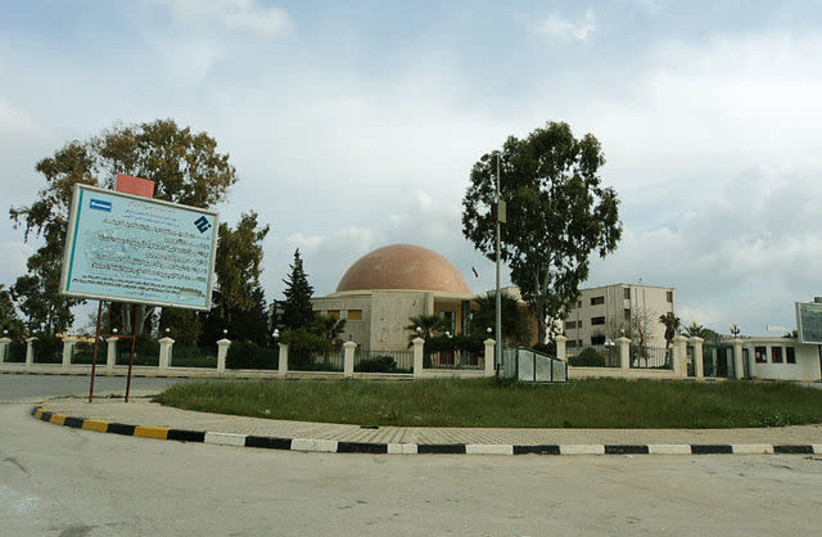Violent clashes erupted in the Libyan capital city, Tripoli, between armed militias backed by the country's two rival governments. The weekend violence marked the largest escalation in Libya since a cease-fire two years ago, sparking fears of a major new conflict in the country.
For more stories from The Media Line go to themedialine.org
According to the Libyan Health Ministry, the battles left over 30 dead and more than 150 injured, while 64 families were evacuated from their residences and some of the capital's hospitals were damaged.
During the Arab Spring in 2011, the Libyan people ousted and killed the country's 42-year ruling dictator Moammar Gadhafi. In the wake of his assassination, a deadly civil war erupted among the parties who were interested in seizing the power vacuum left by Gadhafi. Besides the large number of casualties, and economic and social crisis, the war resulted in the division of the country and the creation of two parallel governments: the internationally recognized Government of National Unity (GNU) based in Tripoli, and the eastern-based House of Representatives (HoR).
The clashes in Tripoli were sparked by the quest for control of the territory between the GNU under Abdul Hamid Dbeibah, and the rival administration in the west, HoR, under Fathi Bashagha.
Bashagha, who is backed by the eastern-based parliament and military strongman Khalifa Haftar, claims the GNU’s mandate has expired, Michael Okpara, a commentator on international affairs based in Nigeria, told The Media Line.

Rhiannon Phillips, an associate intelligence analyst at Sibylline Ltd., a risk consultancy firm, that focuses on geopolitical developments in the Middle East and North Africa, says that the clashes represent an extension of Libya's critically unstable security and political environment, after months of armed clashes between rival political militia siding with opposing administrations.
"Libya's insecurity stems from severe divisions between the opposing governments with long-standing disputes leading to the collapse of UN-backed efforts to establish an election roadmap, which was delayed in December 2021, and implement a stable political system," she told The Media Line.
"Libya's insecurity stems from severe divisions between the opposing governments with long-standing disputes leading to the collapse of UN-backed efforts to establish an election roadmap, which was delayed in December 2021, and implement a stable political system."
Rhiannon Phillips
Mario Savina, a research analyst and OSMED North Africa Desk coordinator, noted that a political solution appears increasingly difficult since there is a clear distance between Dbeibah and Bashagha, which makes dialogue complicated.
"The developments of the last few months are showing how the construction of the “post-Gadhafi Libya” is turning out to be more complicated than previously believed," he told The Media Line.
Could Libya transition to a stable democratic environment?
Phillips believes that the recent clashes undermine the likelihood of Libya transitioning into a stable democratic environment in the immediate to medium term, with the increased political polarization heightening the likelihood of a full-scale civil war in the coming months.
"Sustained escalations and protracted political stalemates will inevitably threaten Libya's ability to implement a stable democratic regime, namely delaying proposed legislative elections and widening the political vacuum," she added.
Also, the lack of cooperation between rival factions in the country hinders any attempt toward a gradual transition to democracy, especially amid strong disagreements on political and economic reforms, reorganization of the military, and the constitution, Nadeem Ahmed Moonakal, a research scholar focusing on the emerging geopolitics of the Middle East, told The Media Line.
Moonakal, from the department of Geopolitics and International Relations at Manipal University in India, added that the evolving security and economic situations in Libya remain very important factors for a return to democracy, and the political deadlock further complicates the internal situation, especially as the UN-mediated talks in Cairo and Geneva also failed to reach a consensus.
"The manner in which the tensions escalated in the last couple of weeks reveals serious risks that could escalate the conflict further as the root of the problem in Libya remains," said Moonakal.
Savina says that, in the current political debate, little is said about the country’s structural problems which need to be solved, while all of the attention is placed on elections and the roles to be filled to control the country.
He believes that the path to the polls should be accompanied in parallel by the resolution of the great structural problems, above all, institutional unification, the Constitutional Charter and the centralized military and security apparatus.
"No change to the status quo and Libya's ongoing political deadlock sustains the likelihood of armed confrontations in the coming weeks and months," said Phillips.
She added that competition over resources will drive attacks on critical infrastructure such as oil, electricity and water facilities, as militia groups seek to increase their political leverage by gaining control over key sectors as has been seen with the storming of oil fields, such as the Zueitina oil terminal and El-Sharara oil field, prompting the suspension of some exports force majeure.
